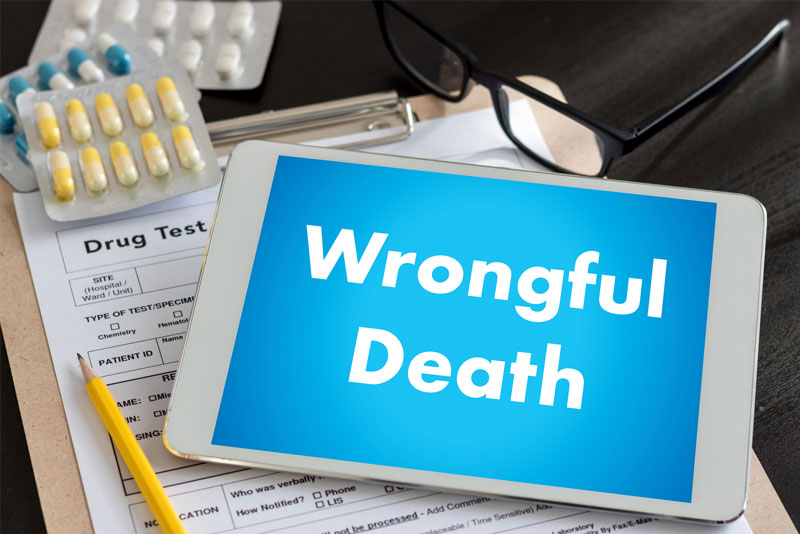Have you ever wondered how significant medical documentation is during the loss of one’s life due to medical negligence?
In the U.S, a wrongful death claim isn’t just an emotional meltdown, but also a structured legal process requiring precision, evidence and a clear understanding of law and medicine. Both healthcare and legal professionals must grasp the legal aspects of wrongful death litigation and types of evidence required to substantiate them-especially medical records-which lay a solid foundation for such cases.
Understanding Wrongful Death Claims in the U.S.
A wrongful death claim arises when a person’s death results from the wrongful act, neglect, or omission of another. These events can range from vehicle accidents and medical malpractice to occupational hazards, product defects/side-effects, or violent wrongdoing.
Unlike criminal proceedings, wrongful death lawsuits are civil actions initiated by surviving family members such as spouses, children, or parents-seeking compensation for financial and non-financial losses caused by the decedent’s untimely death.
Because state statutes govern these claims and they vary, legal counsel familiar with local wrongful death law can prove to be significant. However, the claim’s success primarily hinges on establishing key elements, backed by irrefutable evidence.
The Four Essential Elements of a Wrongful Death Lawsuit
The nucleus of every wrongful death case lies on four fundamental elements. An attorney must build a robust case demonstrating the following legal elements of wrongful death:
- Duty of Care: The defendant must have owed the deceased a legal duty of reasonable care. This duty can arise from statutory obligations (e.g., obeying traffic laws), professional standards (e.g., medical providers), or general societal/moral expectations.
- Breach of Duty: Once duty has been established, the plaintiff must corroborate the fact that the defendant breached duty through negligent, reckless, or intentional conduct. For healthcare providers, this might include failing to follow standard medical protocol; for drivers, behaviors like speeding or DUI violations could constitute a breach.
- Causation: The attorney must establish a direct causal link between the act of breach and the decedent’s injuries leading to death. This goes beyond proximity, as plaintiffs must prove that “but for” the defendant’s conduct, the death would not have occurred.
- Damages: Finally, the lawsuit must establish quantifiable losses caused by the death. These can include financial losses like medical and funeral expenses, lost income, and benefits—as well as non-economic damages like loss of companionship, mental trauma, and, in some jurisdictions, punitive damages for egregious conduct.
Understanding and proving these elements requires diligent documentation and an organized evaluation of evidence.
What Is the Role of Medical Records in Wrongful Death Litigation?
Among all types of evidence, medical records are often the most pivotal in wrongful death cases. They provide a factual, chronological record of the decedent’s health status, treatment decisions, diagnoses, laboratory tests, and providers’ clinical observations. To manage this massive influx of data, many legal teams utilize professional medical record review services to ensure no critical detail is overlooked.
Why Medical Records Matter
- Proving Causation: By developing a detailed legal medical chronology, attorneys can link the specific injury or negligent act to the death by showing exactly how the decedent’s condition progressed.
- Establishing Duty and Breach: Healthcare documentation can demonstrate whether practitioners met or failed to meet the applicable standard of care.
- Quantifying Damages: Records help substantiate medical expenses incurred before death, clarifying both economic and non-economic losses.
Types of medical documentation can include hospital admission and discharge summaries, physician progress notes, diagnostic imaging reports, surgical records, consultation notes, rehabilitation records, and hospice care documentation.
Medical records also often require expert interpretation because of medical complexity. Attorneys commonly partner with medical records specialists to extract and summarize pertinent information.
Other Key Evidence in Wrongful Death Claims
While medical records hold precedence in many cases, a comprehensive wrongful death claim rests on multiple evidence types like:
- Death Certificate and Autopsy Reports: These documents officially establish vital elements like cause of death, date, time, and certifying physician. An autopsy can prove to be of utmost significance in medical malpractice or unclear-cause cases.
- Accident or Police Reports: In events of collisions, slips and falls, or criminal acts, official police reports provide details on circumstances, violations, and preliminary liability findings.
- Witness Statements and Multimedia: Eyewitness accounts, CCTV, dashcam or third-party footage, and photographs help reconstruct incidents and demonstrate negligent behavior.
- Expert Testimony: Medical experts, accident reconstructionists, and economic analysts often provide testimony to bridge technical complexities with legal standards and ascertain the event.
- Financial and Personal Records: Pay stubs, tax returns, employment records, and documentation of future lost earnings support economic damage claims. Records of past contributions and family dynamics assist in non-economic damage claims.
Challenges Involved in Gathering and Using Evidence
Collating all the required evidence is not a straightforward affair. The most common challenges include:
- HIPAA and Privacy Regulations: Access to medical records even during a wrongful death case may require appropriate legal authorization or estate letters.
- Incomplete Records: Gaps or inconsistent documentation can debilitate claims if not backed with supplemental evidence or expert interpretation.
- Complex Medical Jargon: Interpreting medical language into understandable testimony or exhibits can be a challenge for legal professionals who are not familiar with it.
Attorneys and medical record reviewers play a critical role in overcoming these challenges by ensuring evidence is comprehensive, accurate, and effectively presented.
From Evidence to Accountability in Wrongful Death Claims
In the U.S. wrongful death litigation landscape, the pathway from tragedy to justice is governed by structured legal elements (duty, breach, causation, and damages) that must be proven with credible evidence.
Medical records stand at the center of most cases, lending factual weight to claims about negligence and loss. Supported by official reports, witness accounts, financial records, expert testimony, and digital evidence, a solid evidentiary strategy can help legal professionals build convincing wrongful death claims that yield favorable results in the court of law.
For healthcare and legal professionals advising families through these difficult matters, understanding both the legal framework and the documentation process is indispensable. In practice, compiling, analyzing, and presenting evidence is not just a procedural requirement; but the very foundation upon which justice for the deceased and their loved ones is pursued.
Build Your Wrongful Death Claim on Evidence That Matters
Buried evidence? Overlooked detail?
We find and structure the minutest of evidentiary detail that supports your case.




